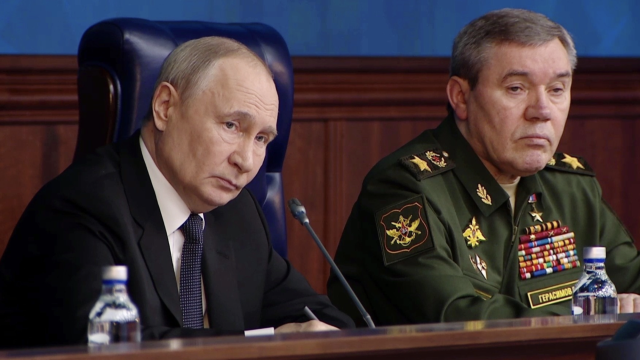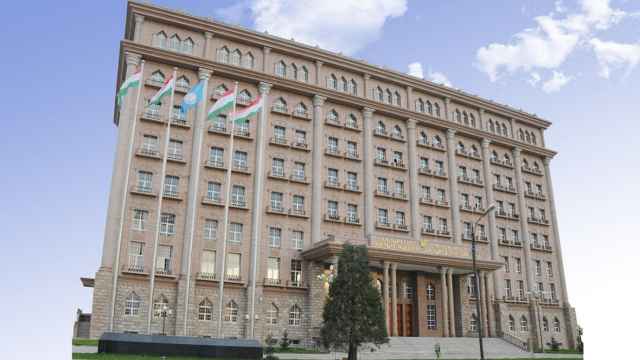The government is discussing the future balance of the federal budget, on which the economic policy of the new president and the cabinet will depend, several officials have confirmed.
One highly placed official said the allocation plan and required reforms should be ready by May. The main problem is finding funding sources for the initiatives that have been announced so far, and reducing pension fund deficits.
It's already clear that the pension fund will run at a deficit until at least 2025, an official said. On top of that, it is necessary to resolve the problem of insufficient funding of health care, he added. Of all state services, citizens are most dissatisfied with the level of health care.
The president and prime minister are aware of this, but so far are not getting involved in the discussion, an official said.
Participants in the deliberations call them "exhausting and lengthy" and a "battle of the agencies."
The battle started with the conclusions made by experts working on the government's Strategy to 2020, which states the necessity to restructure federal spending.
The experts propose a model called "Plus 4, Minus 2," in which "important" expenditures are increased by 4 percent of gross domestic product and ineffective ones are reduced by 2 percent of GDP. This could result in about 700 billion rubles ($23 billion) being shifted annually, according to Vedomosti calculations.
Those that get the status of "important" include:
- Transportation (plus 1.6 percent of GDP)
- Education (plus 1.3 percent of GDP)
- Health care (plus 1 percent of GDP)
At the same time, it is proposed to cut expenses of the power ministries (defense, security and law enforcement) by 0.9 percent of GDP.
The military program, which (not including credits and entitlements) costs more than 1 percent of GDP, exerts "colossal" pressure on the budget, experts said.
There is fat that can be trimmed in the line item for national security, the experts said. It is possible to reduce the number of government bodies, eliminate duplicate departments and transfer part of the staff to the civilian sector.
The government also proposes to reduce by 0.8 percent of GDP the line items for national economy and housing — primarily by cutting direct subsidies from the budget.
The Finance Ministry view on this is even harsher than that of the experts. An expense can only be increased if an equal amount is saved elsewhere, said Finance Minister Anton Siluanov in an interview with Vedomosti in February.
The ministry has already submitted its proposal to the government, several sources told Vedomosti. Saving 2 percent of GDP can be done by reforming the pension system and increasing the specific targeting of social payments (this will yield 0.8 percent of GDP), by cutting military and law enforcement organs another 1.2 percent of GDP will be saved.
"In Russia the number of policemen per 1,000 people is two times higher than in other countries, and their total is equal to the quantity of people serving in the military," a Finance Ministry official said.
Remunerations to staff, which grew rapidly thanks to reform at the Interior Ministry, should not be reduced, but the number of recipients, i.e. the police force, should be.
Expenditures on defense and law enforcement increased noticeably last year, when President Dmitry Medvedev boosted financing of defense programs to 10 trillion rubles by 2020 and carried out an expensive reform program in the Interior Ministry.
Transferring the costs of the police to the federal level in the next three years will require 567 billion rubles, and payments to the regions as compensation for their losses due to the reforms will cost another 210 billion rubles.
An official close to the Defense Ministry confirmed that Deputy Prime Minister Igor Shuvalov has the task of cutting expenses in the line items of national defense and national security and law enforcement activities by 1.2 percent of GDP before 2015.
Now the authorities are discussing reductions, prolongations or the elimination of several programs for weapons purchases (excluding strategic nuclear arms) and cutting staff at the Defense and Interior ministries, without reducing salaries and entitlements, a source confirmed.
Specialists close to the Defense Ministry say there is room to cut. Savings could come from the program to buy helicopter carriers from France, a reduction in the number of strategic submarines to be purchased under project 995, or by excluding the nuclear cruiser Peter the Great from the Navy's fleet by turning it into a presidential yacht.
A spokesman for Deputy Prime Minister Dmitry Rogozin could not comment on whether Rogozin is participating in the discussion on reducing defense spending. A spokesman for the Interior Ministry declined to comment. The ministry is aware of discussions to reduce government expenses, but no specific proposals have been discussed with the ministry, an employee said.
In any case, a high-level official said, only the president can make such decisions about cutting expenses of the military and law enforcement bodies.
It's not necessary to save money on the Interior Ministry, said Vitaly Tsimbal of the Gaidar Institute, since the police have just gone through a reform and need time to adapt to their new life.
The defense sector consumes a lot and requires big spending — so there are things that can be cut, especially in the procurement process, Tsimbal added.
Ruslan Pukhov, director of the Center for Analysis of Strategy and Technology, disagrees. It's not possible to cut defense expenditures, he said. The country has to be ready for a possible war, which could come from Central Asia, he said.
A Message from The Moscow Times:
Dear readers,
We are facing unprecedented challenges. Russia's Prosecutor General's Office has designated The Moscow Times as an "undesirable" organization, criminalizing our work and putting our staff at risk of prosecution. This follows our earlier unjust labeling as a "foreign agent."
These actions are direct attempts to silence independent journalism in Russia. The authorities claim our work "discredits the decisions of the Russian leadership." We see things differently: we strive to provide accurate, unbiased reporting on Russia.
We, the journalists of The Moscow Times, refuse to be silenced. But to continue our work, we need your help.
Your support, no matter how small, makes a world of difference. If you can, please support us monthly starting from just $2. It's quick to set up, and every contribution makes a significant impact.
By supporting The Moscow Times, you're defending open, independent journalism in the face of repression. Thank you for standing with us.
Remind me later.





